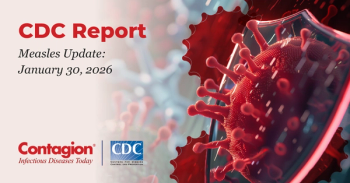
COVID-19 Breakthrough Infections: How We Got Here
An expert explains the science of vaccine- and infection-induced immunity, and how it informs the timeline of COVID-19 outbreaks this year.
Since the first iteration of IDWeek’s COVID-19 Chasing the Sun program during last year’s annual meeting, key topics surrounding the pandemic have significantly evolved.
No subject may be more pertinent this year than that addressed by Cecilia Gounder, MD, ScM, in her presentation on COVID-19 reinfection and post-vaccination breakthrough infections. As the US struggles to contain the virus in post-vaccine rollout stages, many experts and worried members of the general public have returned to the definitions of vaccine efficacy: are we exercising their absolute benefit? Should we be expecting more from mRNA vaccines?
In an interview with Contagion during
As she explained, mRNA vaccines from Pfizer-BioNTech and Moderna progressed from rapid and clinically successful development, to emergency authorization and tiered public rollout, then to early real-world evidence showing robust benefit in preventing symptomatic and/or severe COVID-19. That observation, Gounder noted, incentivized the lifting of masking guidance for fully-vaccinated people in May—though the decision was supported by only a couple month’s data.
“So if you think about it—if you reframe that finding in terms of what we know about immune response to vaccination and infection—we know that you have a spike in neutralizing antibodies very soon after infection or vaccination,” Gounder said. “Simultaneously, you’re developing a memory cell response. And as those antibodies wane over time, your immune response really becomes dependent on that memory cell response.”
When neutralizing antibodies wane, upfront infection protection is not as significant as that observed early after vaccination. It is “to be expected” that breakthrough infections—such as those beginning at scale greater in July—occur in vaccinated persons.
“Then, many of us began to wonder what this all means for vaccine effectiveness and the durability of vaccinated responses,” Gounder explained. “That has really led us to the debate we’re having today about boosters.”
Newsletter
Stay ahead of emerging infectious disease threats with expert insights and breaking research. Subscribe now to get updates delivered straight to your inbox.



































































































































